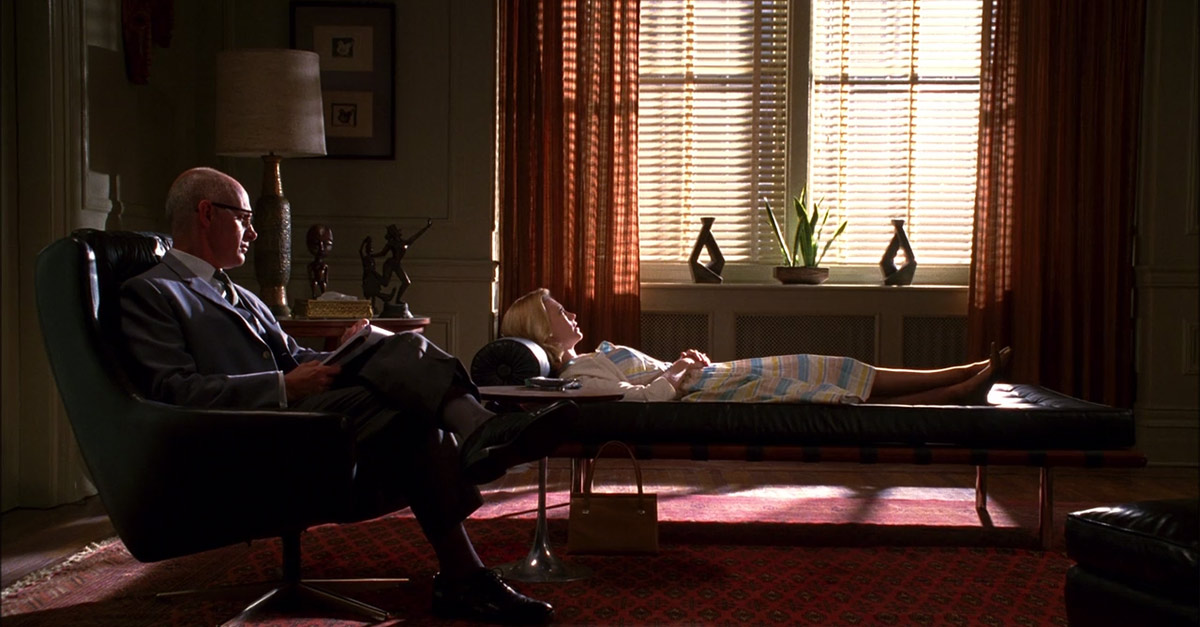Important rewards of saint paul psychotherapy for emotional healing
Wiki Article
Opening the Possible of Psychotherapy Services for Stress And Anxiety Management and Coping Techniques
Psychotherapy offers beneficial devices for handling stress and anxiety and boosting coping approaches. By using different therapeutic techniques, people can gain understandings right into their emotional responses and develop much healthier ways to browse life's stress. This process not only aids in determining stress factors yet also promotes durability - therapist st paul. Recognizing how these solutions can be tailored to satisfy individual demands is crucial. The exploration of efficient approaches exposes deeper understandings right into individual development and healthComprehending Tension and Its Influence on Well-Being
Anxiety, an omnipresent element of modern-day life, considerably affects individual wellness. It materializes in numerous types, from severe pressures, such as due dates, to persistent stress factors like financial problems or connection concerns. This physical and emotional action can bring about significant health and wellness difficulties, including stress and anxiety, anxiety, and heart diseases. Individuals experiencing high stress and anxiety levels usually find it challenging to maintain healthy partnerships, concentrate on everyday jobs, or involve in self-care. Furthermore, the body's anxiety feedback can interrupt sleep patterns and damage the body immune system, further worsening wellness issues. Comprehending the diverse nature of stress is necessary for people looking for to improve their well-being, as recognizing its impact can equip them to embrace much healthier coping systems and way of life modifications.The Function of Psychotherapy in Stress And Anxiety Management
Psychotherapy serves as a crucial device for people looking for to handle anxiety properly. It gives an organized atmosphere where clients can discover their feelings and thoughts, allowing them to identify stress factors and establish healthier coping systems. With therapeutic dialogue, people get insight into their behavioral patterns and find out to reframe unfavorable thinking. This procedure promotes psychological guideline and durability, empowering clients to confront obstacles with a balanced viewpoint. On top of that, Psychotherapy promotes self-awareness, helping people acknowledge their feedbacks and triggers to stress and anxiety. By promoting a supportive restorative connection, experts can direct clients in the direction of personal growth and boosted well-being. therapy st paul. Inevitably, Psychotherapy gears up people with the abilities required to browse stress factors, enhancing their general quality of lifeCommon Healing Methods for Handling Anxiety
Common restorative methods for handling stress consist of Cognitive Behavior modification, mindfulness-based techniques, and Solution-Focused Short Treatment. Each approach offers special strategies for helping individuals deal and understand with stressors. Discovering these strategies can offer valuable insights into efficient anxiety monitoring methods.Cognitive Behavior Treatment
Numerous individuals facing anxiety have actually transformed to Cognitive Behavior modification (CBT) as a reliable method for handling their feelings and ideas. CBT focuses on determining and challenging negative thought patterns, allowing individuals to reframe their understandings of stress factors. By recognizing the connection between sensations, ideas, and behaviors, customers can develop healthier coping approaches. This therapeutic strategy typically entails organized sessions where customers work collaboratively with specialists to set details objectives and keep track of progress. Techniques such as cognitive restructuring and behavior activation are used to foster resilience. Study suggests that CBT can result in significant decreases in stress-related symptoms, making it an important tool for those looking for to improve their psychological wellness and navigate life's difficulties better.
Mindfulness-Based Strategies
While different therapeutic strategies exist for stress and anxiety monitoring, mindfulness-based methods have obtained significant attention for their performance in cultivating present-moment understanding and emotional law. These methods, rooted in ancient meditation techniques, motivate people to focus on their ideas, sensations, and bodily sensations without judgment. By cultivating a non-reactive recognition, individuals can lower stress and anxiety and stress degrees, leading to boosted coping systems. Mindfulness techniques, such as reflection, deep breathing, and mindful activity, help customers develop a greater feeling of self-awareness and resilience. Research has shown that constant engagement in mindfulness can enhance emotional wellness and promote flexible stress responses. These methods have ended up being important parts of modern Psychotherapy, supplying customers valuable devices for guiding via life's obstacles.Solution-Focused Short Therapy
Structure on the mindfulness strategies that foster self-awareness and emotional guideline, Solution-Focused Brief Treatment (SFBT) presents a distinct technique to handling stress and anxiety. SFBT stresses a strengths-based viewpoint, urging people to determine and utilize their current resources and dealing strategies. Instead than residence on issues, this restorative version concentrates on services and future goals, promoting a positive expectation. Via brief, goal-oriented sessions, clients are led to visualize their preferred end results and check out useful steps to attain them. This strategy is particularly effective for people encountering acute stress and anxiety, as it cultivates quick gains in resilience and dealing capabilities. By stressing activity and remedies, SFBT equips clients to browse stress and anxiety with self-confidence and clarity.Developing Coping Approaches With Treatment
In Psychotherapy, establishing reliable coping methods is necessary for stress and anxiety administration. This procedure generally includes recognizing tension triggers, utilizing cognitive behavioral methods, and incorporating mindfulness and leisure methods. By resolving these areas, people can enhance their resilience and much better browse stressful scenarios.Identifying Tension Triggers
Exactly how can individuals successfully recognize their anxiety triggers? Identifying tension causes is an important action in taking care of stress and anxiety. Individuals can start by maintaining an anxiety journal, documenting scenarios that prompt anxiety, along with connected feelings and physical reactions. This reflective method allows patterns to emerge, exposing particular triggers. Furthermore, treatment can facilitate this identification process via assisted discussions where individuals discover their life experiences and psychological feedbacks. Specialists frequently motivate mindfulness methods, assisting customers to come to be more mindful of their immediate feelings and responses. By identifying these triggers, people can obtain understanding into their anxiety feedbacks, laying the foundation for establishing reliable coping methods customized to their special experiences.Cognitive Behavior Strategies
Determining stress triggers serves as a structure for developing reliable coping strategies, and cognitive behavior methods (CBT) play a remarkable duty in this process. CBT involves identifying adverse thought patterns and replacing them with even more positive ones, which can considerably minimize tension levels. By understanding just how thoughts affect feelings and habits, individuals can find out to test illogical beliefs and develop much healthier feedbacks to anxiety. Methods such as cognitive restructuring, analytical, and direct exposure treatment make it possible for customers to face stressors in a regulated atmosphere. In addition, practicing self-monitoring aids customers recognize their progression and setbacks. Inevitably, CBT encourages individuals to cultivate durability and boost their coping skills, fostering an aggressive technique to managing anxiety successfully.Mindfulness and Relaxation Techniques
While cognitive behavior methods focus on restructuring believed patterns, mindfulness and leisure methods use complementary helpful hints techniques for tension monitoring. These methods motivate individuals to grow present-moment awareness, lowering anxiety and promoting psychological regulation. Mindfulness methods, such as meditation and deep-breathing exercises, make it possible for customers to observe their thoughts and feelings without judgment, promoting a feeling of calm. Furthermore, leisure techniques, consisting of progressive muscle mass relaxation and led imagery, further help in minimizing physical stress connected with stress and anxiety. Incorporating these techniques right into Psychotherapy can encourage individuals to create strength and versatility in difficult situations. By integrating mindfulness and relaxation right into their coping toolkit, customers boost their total well-being and improve their capability to navigate anxiety properly.
Structure Strength With Psychotherapy Techniques
Structure resilience through Psychotherapy techniques outfits people with the devices necessary to navigate life's challenges successfully. Numerous methods, such as cognitive-behavioral therapy (CBT), cultivate a much deeper understanding of thoughts and actions, equipping individuals to reframe unfavorable thinking patterns. Additionally, methods like feeling regulation and stress management aid clients create dealing approaches that enhance psychological versatility. Psychotherapy also encourages the farming of a helpful social network, which serves as a barrier against anxiety. By cultivating self-awareness and promoting adaptive abilities, people discover to approach misfortune with self-confidence. Eventually, these Psychotherapy techniques not only aid in getting rid of instant stress factors but likewise lay a structure for lasting resilience, allowing people to adapt to future challenges with greater simplicity and strength.Finding the Right Therapist for Your Requirements
Guiding the trip of strength typically includes seeking expert support, making the option of the right specialist a considerable action. People ought to consider their specific requirements, consisting of the kind of tension they deal with and liked healing techniques. Researching different specialists, analyzing their qualifications, and recognizing their specializeds can assist this choice. Personal compatibility is important; a encouraging and empathetic partnership usually improves restorative end results. Furthermore, logistics such as area, availability, and expense play a necessary duty in selecting a therapist. Taking part in first appointments can help assess comfort levels and therapeutic styles. Eventually, discovering the ideal therapist is a fundamental part of reliable anxiety management and the development of coping techniques, leading the way for enhanced mental wellness.Often Asked Concerns
How Much Time Does Psychotherapy Generally Take to Program Outcomes for Anxiety Administration?
Psychotherapy typically takes a number of weeks to a few months to reveal visible outcomes for stress administration. Individual feedbacks vary based upon aspects such as the seriousness of stress and anxiety, restorative method, and the client's involvement while doing so.
Can Psychotherapy Be Efficient for Anxiety Associated to Particular Life Occasions?

Exist Any Adverse Effects of Psychotherapy for Stress Monitoring?
Psychotherapy visit the website for stress administration might cause short-term pain, such as emotional distress or enhanced anxiety throughout sessions. Nonetheless, these side effects are usually temporary and can be component of the healing procedure.
Just How Much Does Psychotherapy for Stress And Anxiety Management Generally Expense?
Psychotherapy for anxiety monitoring normally costs between $100 to $250 per session, depending upon the therapist's experience and area. Insurance policy might cover some expenses, possibly lowering out-of-pocket costs for clients looking for these solutions.Is Online Therapy as Effective as In-Person Psychotherapy for Stress?
Research study suggests that online therapy can be as reliable as in-person Psychotherapy for tension monitoring. Factors such as specialist connection, client engagement, and specific choices significantly influence the total effectiveness of both modalities.Psychotherapy serves as an essential tool for individuals looking for to take care of stress and anxiety efficiently. therapist st paul mn. In addition, Psychotherapy advertises self-awareness, aiding people acknowledge their triggers and responses to anxiety. Acknowledging anxiety causes is an essential action in managing stress and anxiety. People can begin by maintaining an anxiety diary, documenting situations that provoke tension, along with linked feelings and physical reactions. Psychotherapy can be efficient for anxiety related to details life events, as it gives individuals with dealing methods and emotional assistance
Report this wiki page